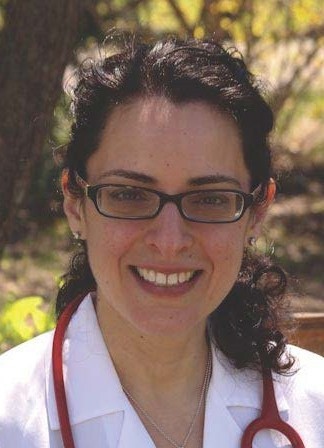Lifestyle medicine for all: Healthy food comes first

“Lifestyle medicine is only for rich people, right?” a colleague asked me several years ago, questioning my involvement in this relatively new field of medicine that guides people toward healthy habits. This has been a common misperception, for sure.
But across the US, a revitalized brand of health activism is intent on bringing lifestyle medicine to a broader range of people. This is backed by a new effort from the American College of Lifestyle Medicine to engage communities most affected by chronic disease.
The first pillar of healthy lifestyle: Food is medicine
Lifestyle medicine is an evidence-based practice of helping people adopt and sustain healthy behaviors like improving diet, increasing activity, managing stress, sleeping well, moderating alcohol consumption, and quitting tobacco. Large studies show such habits can extend our lives by well over a decade. What’s more, these habits can even keep these extra years free of diseases like diabetes, heart disease, strokes, and cancer.
Eating a plant-based diet — meaning a diet rich in vegetables, fruits, beans and legumes, nuts and seeds, and whole grains — can lower inflammation, as well as the risk of many chronic diseases such as diabetes, heart disease, strokes, and cancer. Simply put, food is medicine. Some doctors are providing this information to patients as part of their regular medical care.
But many people do not have easy access to healthy plant foods. Especially now, they may be suffering from significant financial limitations, unemployment, and unstable housing. Or they may live in a “food desert,” where grocery options are severely limited, or worse, a “food swamp,” an area where fast food and junk food are more available than anything else. Living in a food swamp puts people at a higher risk of becoming overweight or obese.
Ways to help change the equation
Helping patients access healthy plant foods is critically important. And some doctors and academic medical centers are taking action to bring healthy foods to underserved communities.
Food pantries. Dr. Jacob Mirsky is a physician at Massachusetts General Hospital and co-director of the department of medicine’s Healthy Lifestyle Program. He works in an underserved community north of Boston, where he directs his clinic’s new plant-based food pantry. When he prescribes a plant-predominant diet to his patients, he also is able to provide the plants. He views this work as activism and a potent way to address inequalities while also taking care of his patients.
Plant-based food pantries and food prescription programs have been positively received by communities. One such program in a rural, low-income area of Texas provided 30 pounds of fresh produce to households identified as food-insecure — meaning they did not have enough food to eat — every two weeks for six months. Participants described the program as critical for helping them feed their families, and 99% reported that they consumed all or almost all of the food they received.
Education and support. Dr. Michelle McMacken is an assistant professor of medicine at New York University’s Grossman School of Medicine, and director of the Plant-Based Lifestyle Medicine Program at NYC Health + Hospitals/Bellevue. She is working to make lifestyle medicine services available to as many patients as possible, regardless of socioeconomic status.
“I believe everyone deserves access to lifestyle medicine, especially the highest-risk, most vulnerable patients who potentially stand to benefit the most,” she says. “The majority of my patients — including those facing significant socioeconomic challenges — want to learn what they can do to become healthier. We collaborate to figure out how they can leverage lifestyle medicine within their own situation.”
Despite challenging circumstances, she has seen patients achieve health transformations, including weight loss and improved cholesterol and blood sugar levels.
Programs that educate people about the power of plant foods can have a big impact. A study of 32 Latinx people with type 2 diabetes living in a medically underserved area of California offered a five-week program introducing participants to the power of plant foods. Declines in blood sugar continued even six months after that program had ended.
Connecting people and food. The Family Van is a longtime mobile health program supported by Harvard Medical School that provides free education, resources, and some clinical services to anyone, regardless of insured status. A large part of what they do is help people access nutritional support through SNAP (Supplemental Nutrition Assistance Program) and locate low-cost produce sources like The Fresh Truck and The Daily Table. They also will provide grocery gift cards along with their healthy diet counseling. The Family Van has been collecting data such as body mass index, blood pressure, blood sugars, and ore for over a decade, and has published several papers showing that such interventions work.
Programs like these are essential and wonderful, but there is a lot more work to be done. In our Healthy Lifestyle Program at Massachusetts General Hospital, we hope to establish the practice of healthy lifestyle as the standard of care for preventing and treating chronic disease for all of our patients. To do this, we are developing practical, accurate methods to assess clinically important diet and lifestyle factors at every patient’s physical exam. At the same time, we’re studying evidence-based approaches to help people eat and live healthier, including our plant-based food pantry, health coaching, and web-based group education classes. We hope that in the future, every one of our patients will have access to the quality information, resources, and support that they need to live their healthiest life.
About the Author

Monique Tello, MD, MPH, Contributor
Disclaimer:
As a service to our readers, Harvard Health Publishing provides access to our library of archived content. Please note the date of last review or update on all articles.
No content on this site, regardless of date, should ever be used as a substitute for direct medical advice from your doctor or other qualified clinician.













